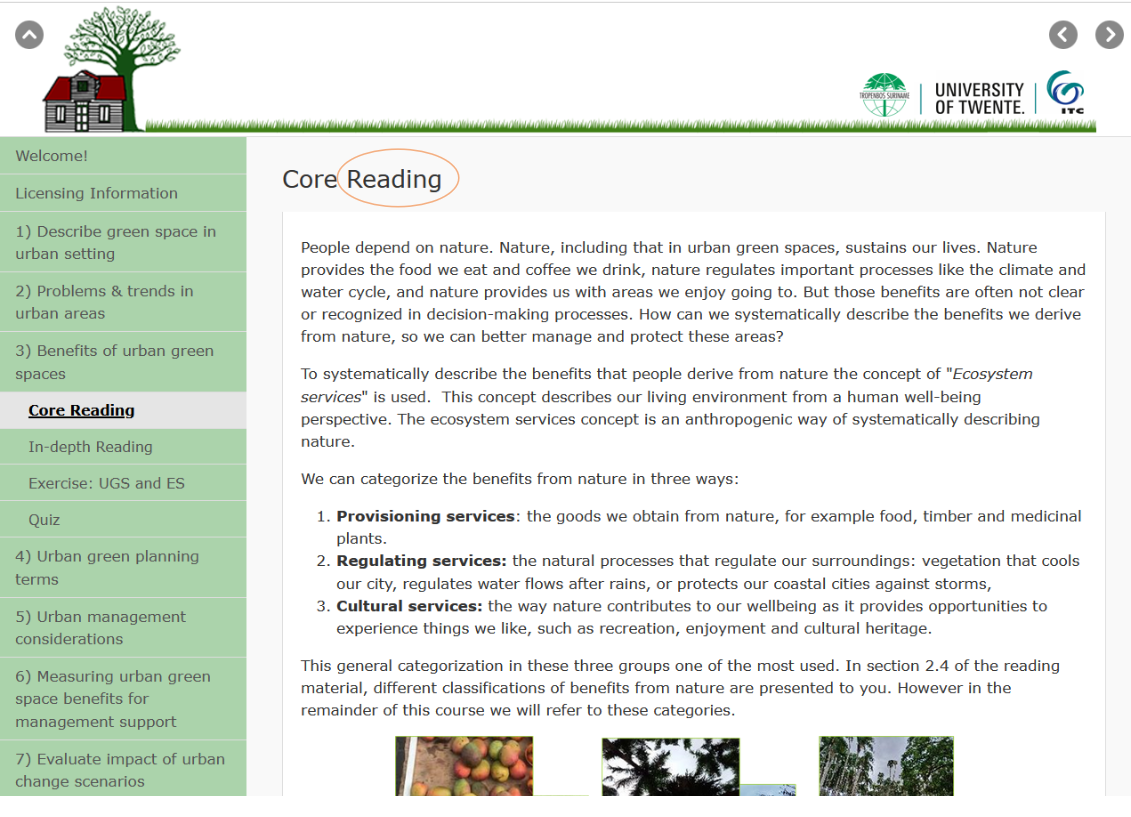The University of Twente ITC together with Tropenbos Suriname developed this e-module on urban green spaces in the tropics in the context, and using the results, of their UTSN Twinning project on “Towards a green and more livable Paramaribo”.
This digital learning module was developed by university teachers and researchers with the aim of giving students a solid introduction to urban green planning and management, the functions and benefits of green spaces in the city, and the measurement and evaluation of planning options. The focus here is on urban green spaces in tropical regions.
This module could be used by students of Environmental Sciences, Management of Natural Resources, Spatial Planning, Geography, or by professionals in these themes. The learning module contains 40 to 60 hours of short videos with explanations, reading material, assignments and quizzes. The e-module has been developed for self-study but can also be included in an ongoing course. After downloading the digital module, it can be used without being connected to the Internet. Download the e-module here!
Are you a teacher and would you like to consult the teacher manual with tips for classroom and practical exercises? This is also available for download here.
Find more education and training materials in the ESP Education & Training Repository.
Snap shot of the E-learning module:

